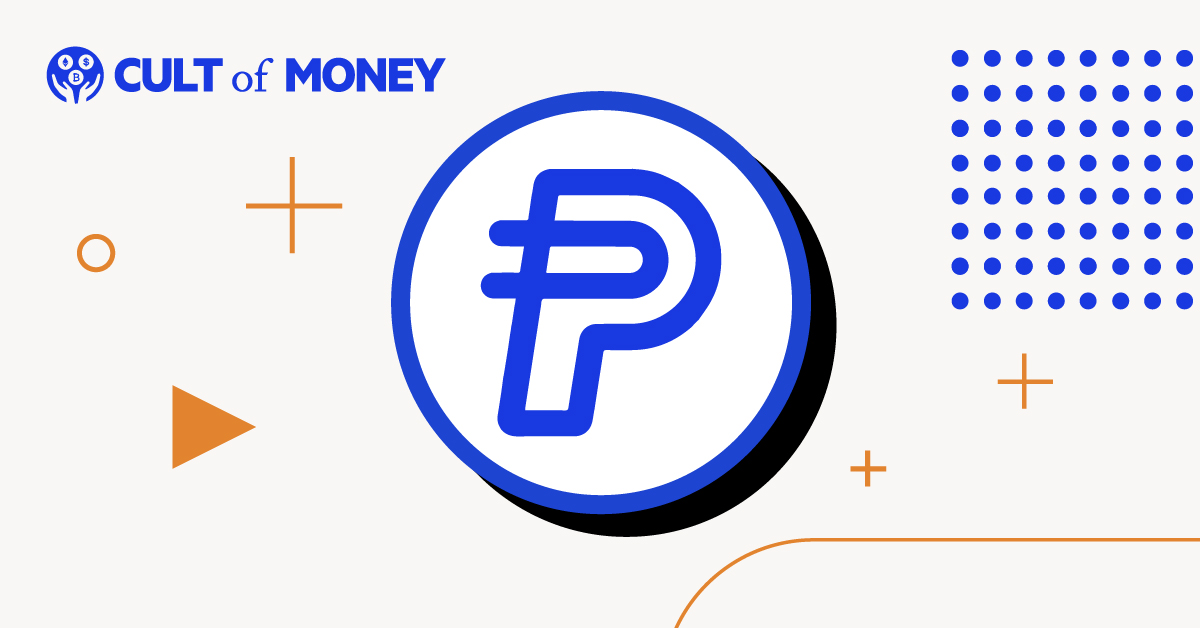On August 7th, 2023, PayPal launched PayPal USD (PYUSD), becoming the first major U.S. payment processing company to launch its own stablecoin.
This development marks another chapter in the FinTech company’s foray into the digital world. And for cryptocurrency enthusiasts who are already in PayPal’s ecosystem, PYUSD makes it even simpler to buy, sell, and exchange crypto on the platform.
However, a new stablecoin from one of the world’s largest payment processing companies hardly screams decentralization. And critics of PYUSD have been quick to point out the potential shortcomings, and even risks, this new stablecoin might present.
Let’s take a look at what PYUSD offers and the potential use cases and pitfalls investors should be aware of.
What Is PayPal USD?
PYUSD is a stablecoin that’s pegged to the U.S. dollar and is fully-backed by U.S. dollar deposits, short-term U.S. treasuries, and similar assets. The stablecoin is issued by Paxos Trust Company and is redeemable in a 1:1 ratio for USD.
This stablecoin is first rolling out to select users in the United States. Its main function is to enable simple and efficient virtual payments, and it also helps PayPal users convert, buy, and sell cryptocurrency.
Stablecoins, which are currencies in which value is pegged to an underlying asset, aren’t new technology. And many popular stablecoins, such as USDC and USDT, are also pegged to the U.S. dollar like PYUSD.
So, why would PayPal venture into stablecoins when others already exist?
Well, PayPal has been dabbling in crypto since 2020, when it began letting customers buy, sell, and hold different cryptocurrencies. It expanded this service in 2021, letting customers check out with crypto and move crypto to alternate wallets.
According to PayPal’s CEO Dan Schulman, “"The shift toward digital currencies requires a stable instrument that is both digitally native and easily connected to fiat currency like the U.S. dollar.”
With PYUSD, PayPal furthers its crypto offerings. It also helps the company prepare for a future in which blockchain transactions potentially play a larger role in commerce. After all, if PayPal can establish PYUSD as a major and utilised stablecoin, it can reduce the threat of losing future market share to DeFi alternatives.
PayPal USD Features
As mentioned, PYUSD is first becoming available to select U.S. customers. This stablecoin has several useful features, including:
- Easy Transfers & Purchases: Quickly buy PYUSD on PayPal and transfer it between PayPal and eligible external wallets.
- Convert: Convert your PYUSD for other cryptos PayPal supports, like Bitcoin, Ethereum, and Litecoin.
- Pay: Shop at the millions of online stores that support crypto using PYUSD.
- Send & Receive: Send PYUSD to U.S. PayPal users without paying any fees, or transfer it to eligible Ethereum wallet addresses.
Since PYUSD is built on the Ethereum blockchain, it’s easily compatible with existing dApps, exchanges, and wallets if developers want to integrate it. And PayPal itself says that its goal is to build the “bridge between fiat and Web3 for consumers, merchants, and developers.”
Is PayPal USD Fully Backed?
PYUSD is pegged to the U.S. dollar, and is, according to PayPal, is “backed by U.S. dollar deposits, US treasuries, and cash equivalents”. This is important because the collateral ensures that investors can redeem their stablecoins for USD if anything should happen that results in depegging from the fiat currency.
The stablecoin is issued by Paxos whose latest transparency report states that PYUSD is fully backed by assets.
Considering the collapse of past stablecoins like TerraUSD (UST) due to lack of full backing, PYUSD’s 100% backing is certainly good news.
Pros & Cons Of PYUSD
PayPal’s launch of PYUSD is a massive moment for all of crypto. One of the largest payment processing companies in the world is doubling-down on blockchain technology in a big way. And this isn’t just another major exchange or crypto-first company launching a new token; it’s one of the largest payment companies diving in.
That said, PYUSD’s release has been met with both excitement and criticism. Here are some of the potential advantages and disadvantages investors should know.
Pros:
Cons:
Is PayPal USD Worth Buying & Using?
If you want to quickly send money to friends or family within the United States, PYUSD could have some use. And PayPal is steadily making it easier for its customers to transact with digital assets.
However, as of right now, investors should question why they’d leave large deposits within PayPal in the first place. The company doesn’t pay interest on PYUSD at the time of writing, and you’d have to open a PayPal Savings account and deposit fiat if you want to earn interest.
Not to mention, you can earn income through crypto staking with many tokens, and popular staking platforms make it easy to convert fiat into digital assets that you can then generate yield with.
The Bottom Line
PYUSD marks a groundbreaking moment for both crypto and TradFi. This is the first time a U.S. payment processing company is diving into stablecoins, and it’s doing so in a big way.
That said, many DeFi advocates aren’t fans. And if you don’t enjoy using PayPal already, PYUSD is unlikely to spur your interest.
Time will tell how PYUSD adoption goes and how useful this new stablecoin proves. But there’s no denying the future of stablecoins and crypto is changing. How regulators and governments respond to new stablecoins is a different story.

Tom Blake is a personal finance writer with a passion for making money online, cryptocurrency and NFTs, investing, and the gig economy.

